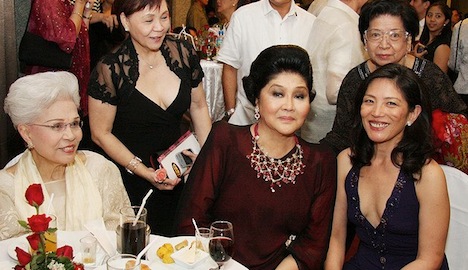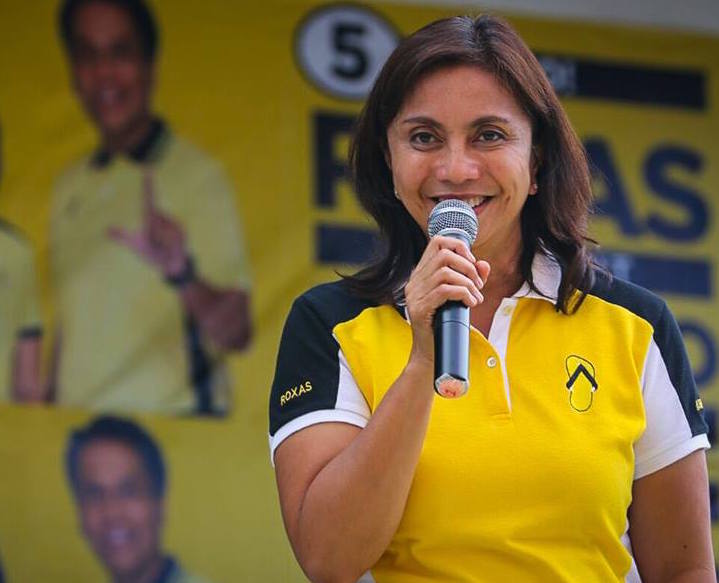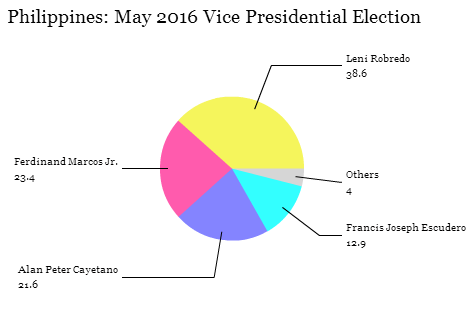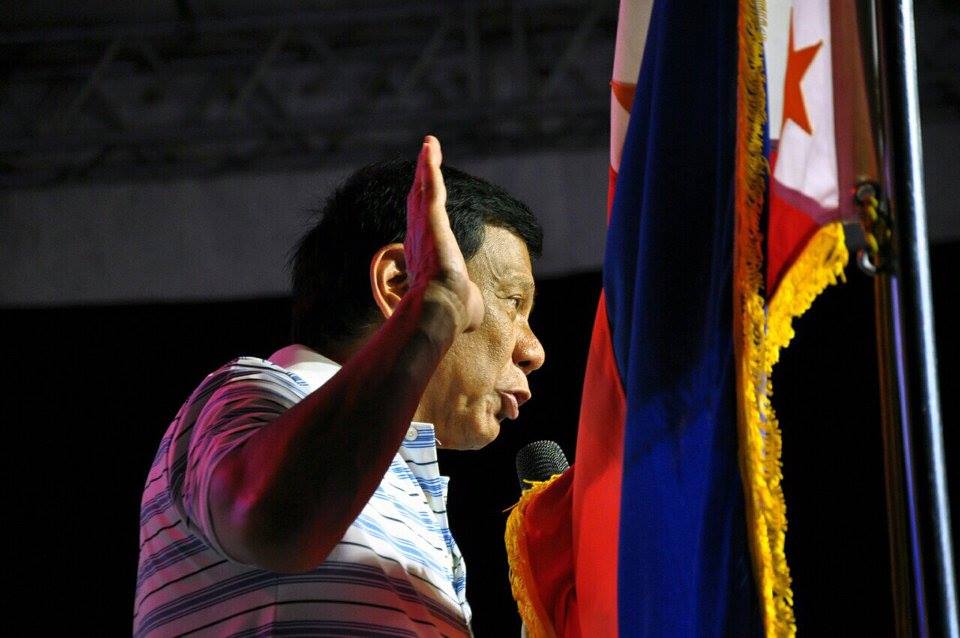
You may have thought you’d seen and heard the last from Imelda Marcos and her fancy footwear collection in the 1980s. But at age 83, she’s still in many ways the ‘iron butterfly’ of the Philippines and she’s running for reelection in the Philippine midterm elections on Monday — and though she’s just one member among 222 in the Philippine House of Representatives, she’s a ‘shoe-in’ for reelection.
That’s not just all — her son, Ferdinand ‘Bongbong’ Marcos, Jr., the namesake of her late husband, Ferdinand Marcos, the leader of the Philippines from 1965 to 1986, is a first-term senator in the Philippine Senate, elected in 2010 to a six-year term for the Partido Nacionalista (NP, Nacionalista Party), which has withered in the days since it was the ironclad ruling party under his father. His mother has not been shy in recent years in boosting Bongbong as a potential presidential candidate in 2016.
In a country where political networks have long been controlled by generation after generation of the same political elite families, it’s not completely out of the question.
Her daughter, Imee Marcos, a former member of the House of Representatives from 1998 to 2007, has been governor of the Philippine province of Ilocos Norte since 2010, and she’s even more of a lock for reelection than her more famous mother, because she’s running unopposed. Ilocos Norte, one of 80 Philippine provinces, is a largely rural province that bears out toward the South China Sea on the far northwestern corner of Luzon island. But though it’s far from the heart of power in the Philippine capital of Manila, it’s the birthplace of the late former president and though the Marcos family may not be entirely popular, their patronage network gives them a political lock on many of the province’s offices.
Whether a Marcos returns to the Philippine presidency in 2016, it’s nonetheless a remarkable comeback for the family’s fortunes. First elected in 1965 and reelected in 1969, Marcos Sr. became increasingly authoritarian, instituting martial law in the Philippines that essentially left its democratic institutions in tatters. A staunch U.S. ally during the Cold War, many Philippines look to the 1970s as a golden era of high GDP growth, though it was an era of corruption, above all at the top of the government among Marcos and his family members.
The Marcos regime reached a turning point in August 1983 when the chief opposition leader to Marcos, Benigno ‘Ninoy’ Aquino, Jr., was assassinated in the Manila airport upon his return to the country to contest Marcos’s policies directly. The economy sputtered, the regime’s international support (above all from the U.S. administration of Ronald Reagan) sputtered, and Marcos’s health sputtered, with Imelda taking an increasing role in state affairs. Marcos was finally ousted in 1986 during the ‘People Power’ movement that drove Ferdinand and Imelda into exile and Aquino’s widow, Corazon Aquino, into power as the country’s first new leader in over two decades. Though Imelda had long been known for her extravagant lifestyle, she’ll forever be remembered for nearly 3,000 pairs of shoes that she left behind in Malacanang presidential palace upon their exile to Hawaii.
Her husband ultimately died in 1989, but Imelda returned to the Philippines in 1991, and she even ran for president in the 1992 election, though she finished in fifth place with barely over 10% of the vote. She aborted an attempted run in the 1998 presidential election, but returned to public life in 2010 with her election to the House of Representatives.
Far from chastened by her 1986 tumble from power, Imelda remains defiantly proud of her role in Philippine public life — and yes, even her shoes.
On her Facebook page (which shows that even Cold War-era autocrats can learn social networking), she even features a tantalizingly unrepentant photo album featuring ‘Imelda’s Shoes, Gowns and other fashion items,’ and other photo albums of her with her husband during their previous years in power.
But the May 13 midterm elections are widely expected to result in victory for Philippine president Benigno Aquino III, known as ‘NoyNoy’ or just ‘PNoy’ to voters, and his allies, which have been christened ‘Team PNoy’ for the campaign (it’s also a play on the word ‘Pinoy,’ an informal term for Filipino). Aquino, the son of Benigno II and Corazon, is expected to ride a wave of good feeling over the Philippine economy’s strong growth and a vigorous anti-corruption campaign to greater congressional support for his administration’s agenda. Continue reading Despite a wave of popularity for Aquino, the Marcos brand attempts a comeback →

![]()



